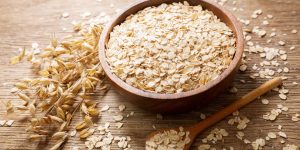In the US, yogurt manufacturers are allowed to claim that their products can prevent type 2 diabetes.
Others are reading now
The US Food and Drug Administration (FDA) has given the green light for yogurt producers to assert that their products may help in preventing type 2 diabetes. The FDA found “limited scientific evidence” supporting the potential health benefit.
The decision was made in response to a petition filed by Danone North America, the maker of Activia, Dannon and Oikos yogurts, The New York Times reports.
Yogurt labels may now feature statements suggesting that “regular consumption of at least three servings of yogurt per week may reduce the risk of type 2 diabetes.” This specified amount is deemed the minimum required to potentially see health benefits, the FDA stated.
The agency’s approval is grounded in the review of 28 research studies indicating a possible link between yogurt consumption and a decreased risk of developing type 2 diabetes. One standout study from 2014 involving almost 200,000 American adults found a 12% lower risk among those who consumed yogurt twice or more per week compared to those who did not.
Also read
The evidence is not unanimous.
A 2019 study involving nearly 8,000 women did not find a significant connection between yogurt intake and diabetes prevention.
Dr. Frank Hu, a professor of dietetics and epidemiology at the Harvard School of Public Health, commented, “Yogurt can be nutrient-dense and part of a healthy diet. There is some evidence that regular consumption is linked with a lower risk of type 2 diabetes.” He pointed out that yogurt is high in protein, minerals, vitamins, and live bacteria that may help reduce inflammation and insulin resistance.
However, some experts opposed such claims on packages.
Bonnie Liebman, director of nutrition at the Center for Science and the Public Interest, expressed concerns that consumers might misinterpret “limited evidence” as being more conclusive than it is.
She noted that all the studies referenced by the FDA were observational, and “such studies cannot determine whether yogurt directly prevents type 2 diabetes, because people who eat yogurt may also have other healthy habits that may protect them from developing the disease.”








